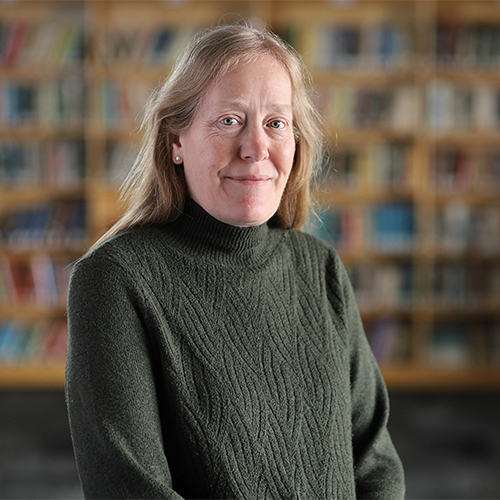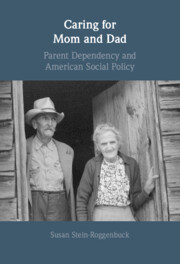New book analyzes public policies for aging parents
November 27, 2023 - Beth Brauer
While caregiving for adult dependents is not a new phenomenon, the reality of what that looks like for Gen X and Millennials deserves our attention. Over 76 million people living in the U.S. were born between 1946 to 1964 and, by 2031, the youngest of the Baby Boomer generation will have reached 67 years. As the senior population grows, the need to provide care also increases.
Trying to navigate the systems at play and to understand the policies that pertain to adult dependents and their families, can easily become a full-time job.
Susan Stein-Roggenbuck, an associate professor in Michigan State University’s James Madison College, studies how different types of social programs target adult children to provide support for aging parents.
“We usually think of requirements for parents, especially fathers, to provide financial support in our public assistance system. In my research for my first book, adult children were key targets in both Aid to Dependent Children and Old Age Assistance – representing a continuity in our public assistance system dating to the colonial era,” Stein-Roggenbuck said. “That prompted questions for me regarding support for aging parents in need.”

In her new book “Caring for Mom and Dad: Parent Dependency in American Social Policy,” published by Cambridge University Press, Stein-Roggenbuck examines three different areas of public policy: public assistance, survivor benefits under the U.S. Social Security Act and federal tax benefits.
“I question the idea that the Social Security Act and its related programs have absolved family members from taking care of their parents. This study shows this is not the case,” said Stein-Roggenbuck. “People are providing in a myriad of ways, whether it is required or not.”
While Stein-Roggenbuck expected her research to confirm some of the ways families are stretched — often put into impossible situations — what she wasn’t anticipating is the scope of programs that address aging parents and the depth of fiscal conservatism regarding provisions for support.
Citing the survivor benefit program that was created in 1939 to support wives, widows and children, Stein-Roggenbuck explains a lesser-known part of the program that entitled parents whose adult children supported them, could qualify for benefits if their son or daughter died. As social security benefits have expanded to more Americans, survivor benefits are now less common for parents. In the case of federal tax exemptions, the benefits were quite low to begin with and have only decreased over time.
“What is apparent are the deeply-rooted beliefs of what ought to be the responsibility of government versus family,” said Stein-Roggenbuck.

“Caring for Mom and Dad” is a useful resource for anyone interested in understanding the government’s benefits structure and programs, and the existing biases that limit support for aging parents who do not have the financial resources to meet basic needs. It also analyzes how family is conceptualized in the administration of these programs — often in ways that seek to limit access to benefits and reduce public costs.
With a rapidly aging population and the rise in cost-of-living outpacing median incomes, the future appears bleak.
“The proportion of people to pay into programs to support senior citizens, including Medicare and Social Security, is not keeping pace with the number of elderly drawing from those programs,” said Stein-Roggenbuck.
“There are not enough caretakers to care for our aging population and limited support for family members to help support their aging parents. We need a fundamental rethinking of how we provide for aging Americans, from increased Social Security benefits and expanded access to health care, and investment in workers to provide care.”
Aptly timed, Stein-Roggenbuck’s next project will focus on American health care.

